How Does Online Monitoring Protect Teen from Online Scams
Teenagers’ use of the Internet is alarming. Cybercriminals pose a serious threat. The top cybercrime is scams, which most parents ignore. We noticed the security breach and thought we could help. In this article, we tell you the common online scams and how monitoring can help your teen get rid of them. We also bring you the best monitoring applications on the market! Stay with us to the end.

Part 1. What are Online Scams
Internet scams use internet services to deceive people. By using misleading information, they gain financially. They can trick you into providing sensitive information like credit card numbers and house addresses. Scammers may contact your teens through social networking sites, email, or dating apps. The outcome of most online scams is the same: victims lose their money or do not get what they expected. Surfing the internet can expose your child to several online scams. To help you monitor your kid, we present the common ones here. Educate your children on these scams to avoid losses.
Part 2. Types of Scams
The internet is full of scams today. The majority steal personal information or financial data. Here are some common scams.
1. Phishing
A phishing scam involves scammers sending you an email that appears to come from a trusted source. Kids will be tricked into disclosing credit card, bank, and password details in the received email.
2. Online Shopping Fraud
A scammer poses as an online seller with a fake website. For marketing purposes, they use sophisticated designs and famous brands to create a website. Clothing, accessories, and gadgets from famous brands are offered at relatively low prices on fraud websites.
3. Employment Opportunity Scam
Financial independence is the goal of most teens. Scammers post job openings online like real companies. You might find job openings on social media, employment portals, or classified ads. It's a scam! They promise you a job but want your money.
4. Scholarship Scam
The scam involves pretending to be a government agency or educational institution and offering scholarships to children. Most scholarship fraudsters demand a registration fee or a certain amount of money, and some steal identities.
5. Lottery Scam
Lottery scams can be transmitted via emails, phone calls, messages, or social networks. They'll claim you've won a lottery, prize, and sweepstakes like mobile phones, cash prizes, and vehicles. It might seem legit.
6. Technical Support Scam
A common tech support scam involves scammers posing as well-known companies. They might say that your device has a problem and needs to fix it and software problems.
7. Online Dating Scam
Teenagers like online dating. Using fake photos and lying about their age, scammers create fake profiles on online dating websites to lure young teenagers. Teenagers often fall victim to such website scams.
8. Credit Card Phishing
Some websites require you to enter your bank information or credit card details. The risk of fraudsters stealing all of your money is high if you provide the requested information.
9. Threat or Extortion Scam
In extortion, threats are used to obtain money or property illegally. Scammers usually threaten to expose unpleasant or harmful information if the victim does not comply.
Part 3. What is Online Monitoring
Monitoring online involves watching your target's activity on their device. You can also block inappropriate sites with monitoring apps. To prevent malicious software and unauthorized access, these apps also include antivirus and firewall features.
Part 4. How Does Online Monitoring Help Teens Get Rid of Online Scams?
With technology, risks rise. Criminals use various online techniques to deceive. The easiest target for fraudsters is children. You know all the online scams your child might fall for. Watch their actions before anything bad happens. Monitoring applications provide several features required to track your child's online activities. We discuss 4 of them here.
1. Keylogger and Keyword Track
You receive a notification when your kid enters a specific keyword. Setting keywords related to explicit content, abusive language, cyberbullying, and sensitive information will notify you every time they share such information.
2. Track phone calls, IM chats, and SMS
You can monitor their outgoing and incoming SMS and chats. Watch who they talk to and what messages they send. Your child is likely responding to scam messages online. You can stop something bad by tracking their text messages.
3. Track browsing history
Fraudulent activities are common on online shopping sites. Tracking browsing history lets you see all sites they visited. Then you can determine if your child visited such sites intentionally or unintentionally. You can then block them!
4. Track locations and get alert notifications
Monitoring apps usually include GPS location tracking that lets you know where your child is at any given time. You can track your child's location in real-time if you are always concerned about their whereabouts. You can restrict certain areas with geo-fencing and receive alerts if they enter. If your child takes the wrong route, you'll be notified. Taking these steps protects your child!
Part 5. Best Monitoring Applications
Monitoring applications work best for tracking online activities. You may want to choose a budget-friendly service that is reliable, convenient, and easy to use. Here are our top picks!
1. SpyX
SpyX is the most effective and widely used parental control monitoring program. It’s our number one recommendation for a monitoring app. SpyX operates in complete stealth mode and your target has no chance of discovering. You can use it on both Android and iOS devices. SpyX is feature-packed spy app..
- Have easy operation and a simple user interface
- Monitor the iMessaging application on the target device
- Update information of the target device every 5 minutes
- Set keylogging and keyword alerts.
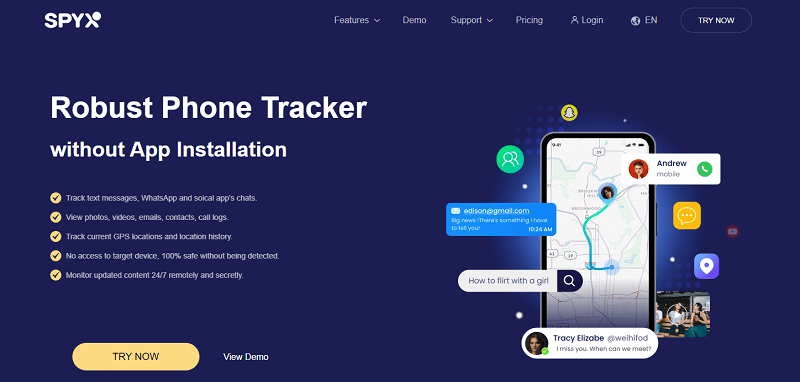
2. Norton Family Premier
With Norton Family Premier, you can monitor mobile phone browsing, app usage, and desktop browsing. You can filter search engine results with Norton, preventing unwanted information from showing up. Windows, Android, and iOS are supported, but not macOS.
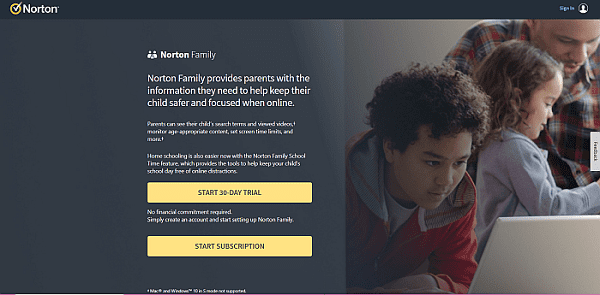
3. Qustodio
With Qustodio, you can track your kids' online activity on Windows, Android, and iOS devices. Adult websites are blocked by its advanced web filtering system.
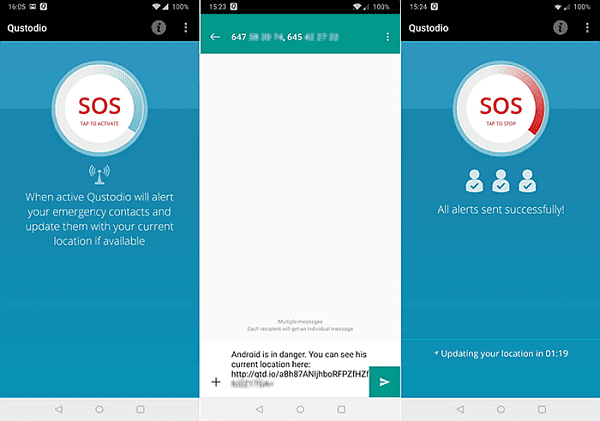
4. Net Nanny
Net Nanny lets you monitor your child's device so you know what they're up to. By using artificial intelligence (AI), it filters out unsuitable content.

5. MobileSpy
Monitor your child's online activities with MobileSpy, one of the best monitoring apps. The app allows you to monitor and control your teen's mobile phone 24/7, ensuring their online safety.
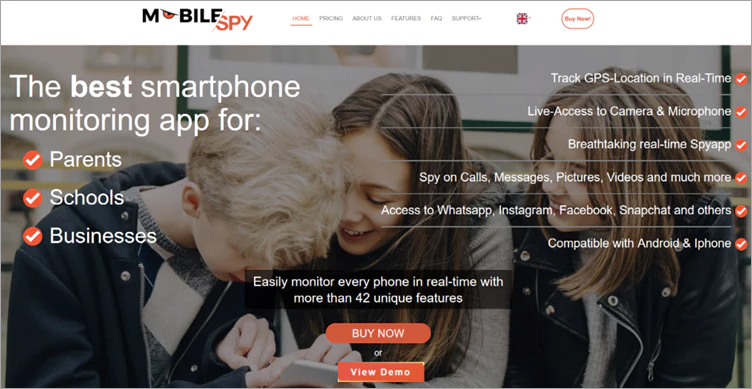
6. Famisafe
Monitoring your teen's online activities is easy with Famisafe. Monitors all phone and computer activity of your child. Famisafe works on Windows, Mac, iOS, and Android. It's easy for users to install without rooting or jailbreaking.
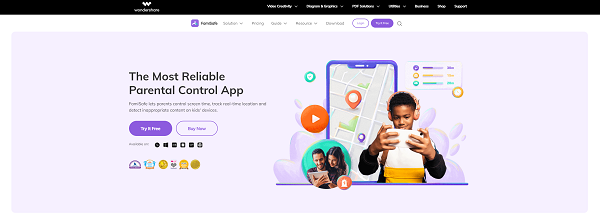
7. Bark
Bark filters content intelligently. It blocks inappropriate fraud websites for your kids. If your child accesses anything inappropriate, Bark will alert you.

Conclusion
Internet scams are on the rise. You've learned about the commonest and how monitoring can help. We have the best monitoring apps for your child.
More Articles Like This
SPYX'S SOFTWARE INTENDED FOR LEGAL USE ONLY. You are required to notify users of the device that they are being monitored. Failure to do so is likely to result in violation of applicable law and may result in severe monetary and criminal penalties ...







Disclaimer: SPYX'S SOFTWARE INTENDED FOR LEGAL USE ONLY. You are required to notify users of the device that they are being monitored. Failure to do so is likely to result .....
